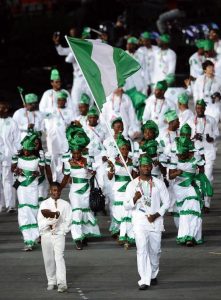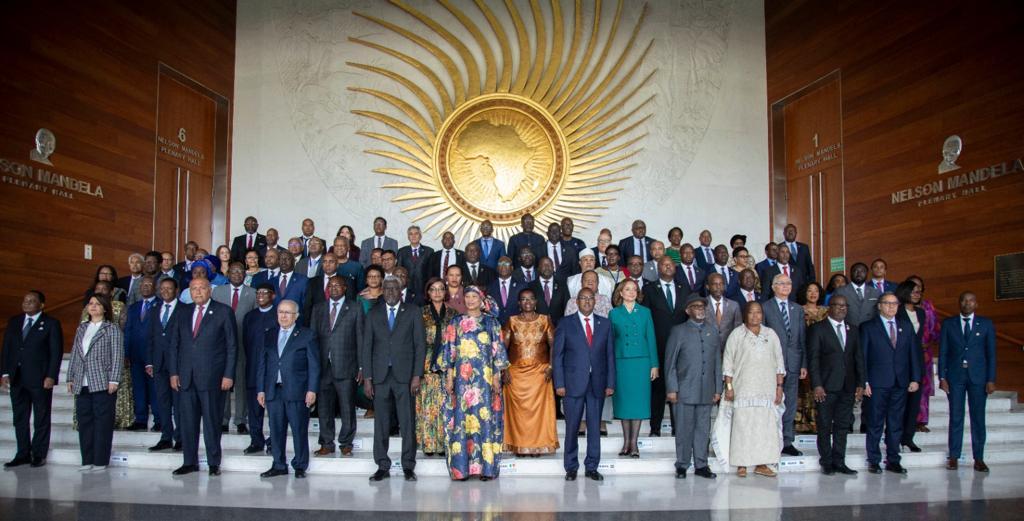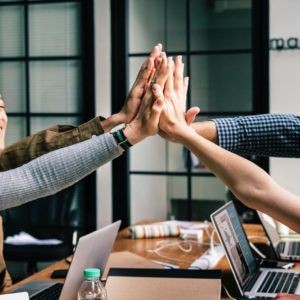Preparations for Nigeria’s seventh consecutive general elections since the return of democracy in 1999 are in top gear, with the Independent National Electoral Commission (INEC) assuring Nigerians and the rest of the world that there won’t be a shift in the date of the polls.
The presidential and National Assembly elections are scheduled to hold on February 25, while governorship and state Houses of Assembly elections will hold on March 11, 2023.
President Muhammadu Buhari, who will complete his constitutionally allowed two terms in May, is not on the ballot. Here are five things you need to know about the 2023 election in Nigeria:
The electoral framework
To win in the first round of the presidential contest, a candidate needs both 50 percent of the national vote and 25 percent of the vote in two-thirds of Nigeria’s 36 states. Should no candidate reach this threshold—a real possibility in such a close election—a runoff between the top two contestants must be organized within seven days and won by a simple majority. According to the electoral commission, some 93.4 million people have registered to vote in 176,606 polling stations that will be set up across Nigeria and heavily guarded by police.
The challenge for the parties, however, will be getting out the vote. Many younger Nigerians do not relate to the two major-party candidates, who are both septuagenarian political veterans. In 2019, voter turnout was 35%, electoral commission figures showed.
Nigeria has a long history of electoral fraud, this year, however, the Independent National Electoral Commission (INEC) is using a Bimodal Voter Accreditation System (BVAS) to identify voters through fingerprints and facial recognition, hoping this will curb rigging.
On voting day, results will be pasted outside polling stations and sent through BVAS to an INEC portal in Abuja. They will be displayed on the portal in real-time and the public can view them.
Official results are expected within five days. The candidate with the most votes will be declared the winner if they have at least one-quarter of the vote in two-thirds of Nigeria’s 36 states and the capital. Otherwise, there will be a run-off between the two top candidates within 21 days.
Who is running for president?
A total of 18 candidates are campaigning for the top job, but only three have a realistic chance of winning, according to opinion polls.
Bola Ahmed Tinubu
Bola Ahmed Tinubu, 70, is standing for the governing All Progressives Congress (APC) party. Known as a political godfather in the south-west region, he wields a huge amount of influence but has been dogged by allegations of corruption over the years and poor health, both of which he denies. Some say his campaign slogan Emi Lokan, which means “it’s my turn [to be president]” in the Yoruba language, shows a sense of entitlement.
Atiku Abubakar
Atiku Abubakar, 76, is running on behalf of the main opposition People’s Democratic Party (PDP). He has run for the presidency five times before – all of which he has lost. Most of his career has been in the corridors of power, having worked as a top civil servant, vice-president under Olusegun Obasanjo and a prominent businessman. Just like Mr Tinubu, he has been accused of corruption and cronyism, which he denies.
Peter Obi
Peter Obi, 61, is hoping to break up the two-party system which has dominated Nigeria since the end of military rule in 1999 and is running for the little-known Labour Party. Although he was in the PDP until last year, he is seen as a relatively fresh face and enjoys fervent support on social media and amongst Nigeria’s youth. The wealthy businessman served as governor of the south-eastern Anambra State from 2006 to 2014. His backers, known as the “OBIdients” say he is the only candidate with integrity, but his critics argue that a vote for Obi is wasted as he is unlikely to win.
The main issues: Insecurity, the economy, and a divided country
Insecurity, a struggling economy and national unity are some of Nigerians’ most pressing challenges. Insecurity has increased in recent years, fuelled by jihadism, banditry, kidnappings and a separatist insurgency.
Fixing the economy is also key. The country’s debt profile has continued to worsen, along with revenue shortages and high unemployment. The rising cost of living also concerns many Nigerians.
A candidate with a track record of managing public funds would have an advantage. That’s according to Tukur Garba, a professor of development economics at the Usmanu Danfodiyo University in Sokoto, northwestern Nigeria.
“Nigeria’s economy is in a difficult situation with debt servicing exceeding revenue,” he told Africa Check. “Corruption is at the root of Nigeria’s economic woes. Even the insecurity, which is impacting agriculture and trade, is linked to corruption in the security agencies.”
Some prominent Nigerians, including former president Olusegun Obasanjo and Nobel laureate Wole Soyinka, have also warned that Buhari’s administration has left Nigeria more divided.
A survey by the Africa Polling Institute, a nonpartisan research think tank based in Abuja, appears to confirm this.
The 2021 Nigeria social cohesion survey interviewed 5,363 people across the country on 10 indicators. These included identity, trust, social justice, corruption and future expectations.
The survey calculated a social cohesion index of 44.2%, indicating that “the country has become more divided along ethnic, social, political, economic and religious lines, thereby threatening the social fabric, unity and peaceful co-existence of the country”.
So, an ability to unite the country would appeal to many voters.
Unfortunately, Nigeria’s presidential elections are rarely issue-based, Dauda said.
“So, the pertinent issues of security and the failing economy will not have as much impact on the outcome of the election as ethnicity, religion and regionalism.”
Youthful Electorate
Nigeria’s population, which has grown at one of the fastest rates worldwide, is currently estimated at about 220 million and is forecast to double by 2050. Proportionally, the country has one of the highest populations of young people in the world, with 42 per cent of its citizens under the age of 15 and 70 per cent under 30, while its median age is 18.
These demographic features underlie Nigeria’s young electorate: nearly 40 per cent of registered voters (37 million) are between the ages of 18 and 34, followed by 35.7 per cent of middle-aged voters (33.4 million) between 35 and 49 years of age. Of the 93.4 million registered voters in Nigeria, over 75 per cent are 49 and under.
Despite the demographic heft of youthful voters in Nigeria, its democracy has under-delivered on its promise to them. Eras of growth have not resulted in material benefits for most people, and social inequality has increased.
Africa’s big brother
Nigeria’s election has been described as pivotal to the progress of democracy in Africa, where military coups and attempts by longstanding rulers to cling to power have raised fears of a “democratic retreat” from advances made since the end of the cold war.
More than a dozen African countries go the polls in the coming 12 months, but experts agree that the presidential and parliamentary vote in the continent’s most populous country is the one that matters the most.
The country has played a vital role in resolving political conflicts in neighbouring countries. Nigeria has also contributed troops to quell uprisings and maintain peace in some African countries.
The African continent’s largest democracy still struggles with infrastructure deficit and two-thirds of its population not having access to safe water.
Successful elections are important not just for Nigeria, but for the whole region. The vote comes at a critical time. As well as coups across west Africa, wars have flared and extremism has spread. Economies everywhere on the continent are struggling to overcome the damage done by the Covid-19 pandemic, inflation caused in part by Russia’s invasion of the Ukraine, and multiple other challenges. Investment has stalled.
However, a stable, outward-looking Nigeria is not possible if the country becomes engulfed in an internal conflict over disputed elections.



